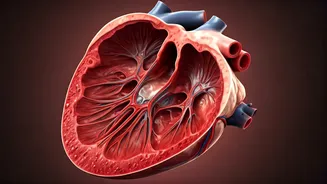Iron Deficiency Uncovered
Iron deficiency anemia is a significant health issue in India, affecting a large portion of the population. This condition results when the body doesn't
have sufficient iron to produce hemoglobin, the protein in red blood cells that transports oxygen. Common symptoms include fatigue, weakness, and headaches, which can affect everyday activities. To counter iron deficiency, focus on incorporating iron-rich foods into your diet. Some examples are leafy green vegetables like spinach, lentils, and fortified cereals. Combining these foods with vitamin C-rich items like citrus fruits can significantly boost iron absorption. Additionally, individuals may consider consulting a healthcare professional for possible iron supplements if dietary adjustments alone are insufficient.
Calcium: Bone Health
Calcium deficiency is also widespread in India, potentially leading to weakened bones and a greater risk of osteoporosis. Calcium is vital for maintaining strong bones and teeth, as well as for proper muscle and nerve function. Insufficient calcium intake often stems from factors like lactose intolerance or restricted access to dairy products. To improve calcium levels, it is recommended to include calcium-rich foods in the daily diet. Good sources include dairy products such as milk, yogurt, and cheese, in addition to non-dairy options such as fortified plant-based milk and leafy green vegetables like kale. Adequate vitamin D is also critical, as it supports calcium absorption. Regular sun exposure or vitamin D supplements can help ensure optimum calcium utilization.
Vitamin D: Sunshine's Role
Vitamin D deficiency is another prevalent problem among Indians. Vitamin D is essential for calcium absorption, bone health, and immune function. The body produces vitamin D when exposed to sunlight, but inadequate sun exposure due to lifestyle or geographical factors contributes to deficiency. Furthermore, factors such as skin pigmentation can reduce vitamin D synthesis from sunlight. Supplementing with vitamin D is often necessary. Regular intake of vitamin D-rich foods like fatty fish, egg yolks, and fortified foods can help maintain adequate levels. Periodic blood tests can help monitor your vitamin D levels, and healthcare professionals can guide the right dosage to rectify a deficiency.






















